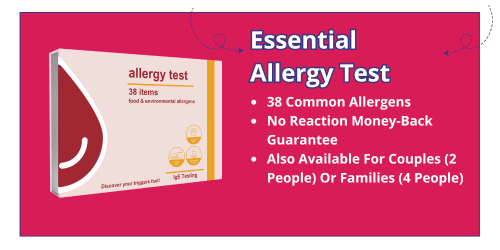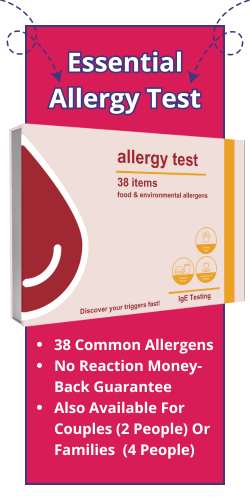We all know of the more common allergies like peanuts, milk, pollen, egg and tree nuts. But what about those lesser-known allergies? We’ve dug up three particularly unusual allergies that aren’t commonly checked for in a typical allergy test.
Touch Allergy
Also called dermatographia or skin writing, this unusual skin condition is actually quite common in the grand scheme of things. Affecting between 2 and 5% of the population, this dermatographia, or, allergy to touch, is a condition where people who scratch their skin only lightly will find that these scratches redden and the skin raises.
The area can become itchy or even cause welts, but most people with the condition don’t feel the need to seek medical treatment. The good news is that these reddened raised scratches tend to disappear within 30 about minutes.
Water Allergy
Water allergy, or, Aquagenic urticaria, is an especially rare allergy where coming into contact with water causes itchy red hives. Symptoms can last for up to an hour after contact.
We aren’t kidding when we said this is a rare one, there are only 50 or so documented cases of water allergy worldwide. It’s unclear what causes this unusually allergy (other than water of course) but there are some methods of treatment available for those with this unfortunate condition. Treatment can comprise of medications, phototherapy and barrier cream.
Despite the common term ‘water allergy’ this condition couldn’t possibly be a true allergy to water, due to the majority of our bodies being comprised of water. There’s are theories that the condition may be a reaction to substances dissolved in the water, or an interaction between a substance on the skin and the water. However, due to the rarest ty of this dermatological condition, it’s incredibly difficult to research. The true cause may never be discovered.
Money Allergy
There are actually a few different conditions that can make one ‘allergic to money’.
The most common condition being an allergy to nickel in coins. Most of the world’s money coins are made up of a variety of metals, including nickel.
The alloys of nickel commonly used in coins tend to be predisposed to corrosion which can occur after coming into contact with sweat. Certain people who handle coins for prolonged periods such as bankers or cashiers are at higher risk of developing nickel contact dermatitis.
Get an Allergy test?
Any kind of allergy presents a potentially life-threatening risk. Food allergies can become especially dangerous since it’s harder to cease contact with the food you just ate. That’s why we recommend anyone, regardless of symptoms or not, undergo an allergy test. To identify any threats before you unwittingly consume or come into contact with a substance that could cause adverse reactions. It’s a much safer approach to do a pre-emptive check, especially with incidences of allergies rising exponentially over the last few decades.







